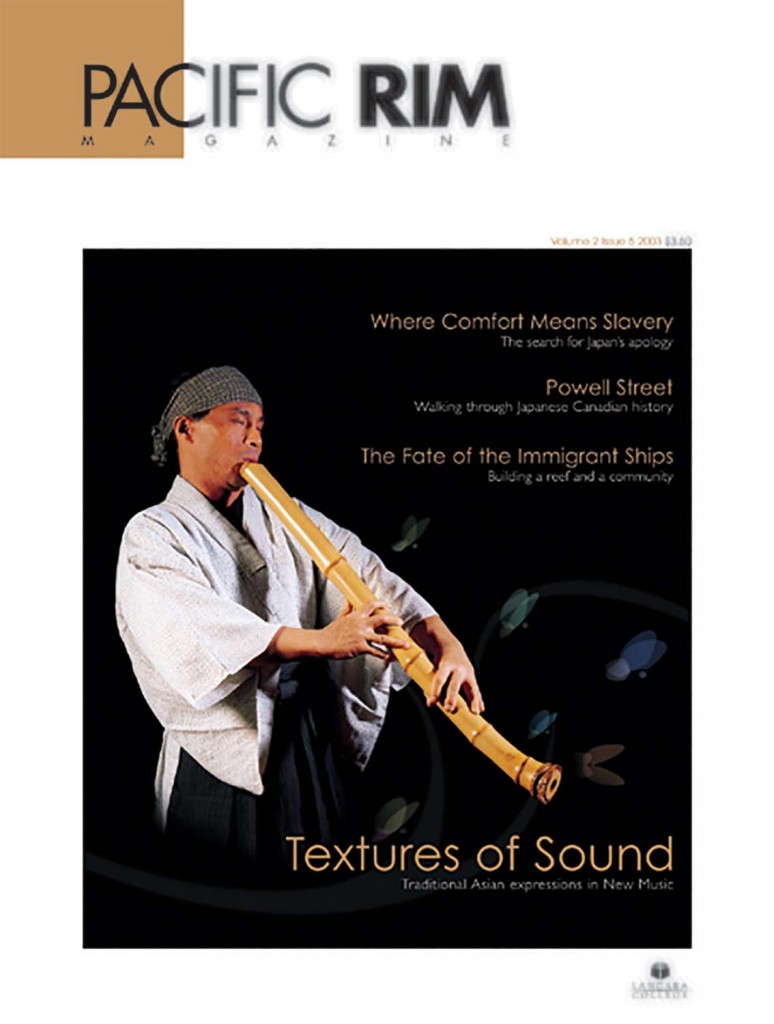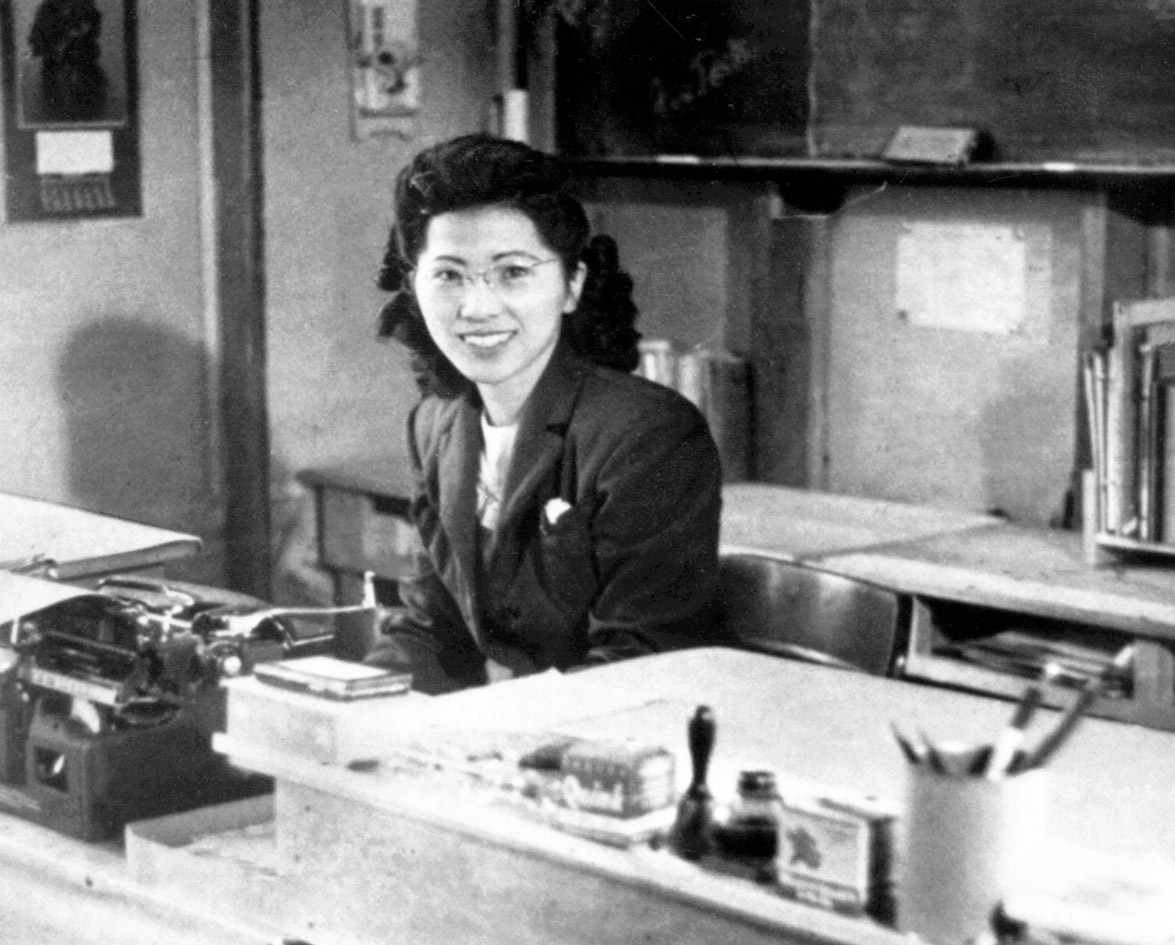When sixteen-year-old Lee Ok Soon arrived in China, her clothing was covered in filth and blood. Told she could work off the debt for the clean clothes she received, Lee Ok Soon, on the bare concrete floor where she slept, worked hard servicing 30 to 40 military men a day. For three years, her vagina was raw and red with pain, and her body ached from endless beatings. Venereal disease haunted her constantly while the military doctors, also known for raping their patients, pumped her full of toxic injections known as 606. Every day, she wished she were dead.
It is estimated that hundreds of thousands of girls and women were abducted during World War II and transported to Japanese military stations throughout Southeast Asia. Those left living carry a pain too brutal to imagine. Some of the women have grown to fear and hate men. Some are haunted by recurring nightmares. Still others have been unable to reach orgasm or any type of physical pleasure in their relationships. Having lived in fear of ostracization most of their lives, the former comfort women have had to suffer out their lives in silence—until now.
In the busy city of Seoul, Dr. Yun Chung Ok, former president of the Korean Council for the Women Drafted for Military Sexual Slavery by Japan (the Korean Council), works diligently at preparing for the next conference on the euphemistically named “comfort women.” Having just barely escaped abduction by the Japanese when she was 17, Yun has spent most of her life fighting for both an apology to, and compensation for, the girls and women who were taken from, not only Korea, but also the Philippines, Taiwan, Indonesia (and Holland), China, and even Japan. Monuments to the unknown soldier dot the planet everywhere, but nowhere can be found a monument to the unknown comfort woman, a fact Yun intends to change.
Fighting For A Conviction And Justice
After repeated attempts to attain justice for the 136 former comfort women left living and the estimated 400,000 dead, Yun has finally got the conviction for which she has long been fighting. With the help of many other organizations worldwide, Yun worked for years to set up the Women’s International War Crimes Tribunals on Japan’s Military Sexual Slavery. Held in Tokyo in 2000, and later in The Hague in 2001, the Tribunals listened to the testimonies of over 75 survivors. Finding Japanese officials guilty of “both individual and superior responsibility for the rapes and sexual slavery committed as part of the comfort system,” the Tribunal convicted, in absentia, the seemingly invincible Emperor Hirohito, along with 11 others.
Having based the Tribunals on Bertrand Russell’s model initiated during the Vietnam War, Yun emphasized, “The reason we brought the Japanese Emperor to court was not because we wanted revenge, but because we wanted justice. Without this justice, world peace is not possible. In Japan, many people have no knowledge their Emperor was convicted—they deny everything. They are really good at denying the truth, and they are really good at minimizing the truth, and they are really good at destroying the truth.” This year in Tokyo, an international meeting about what should happen after the trial was held. Although Yun and others handed the verdict from the 2000 Tribunal to the Japanese Foreign Minister, they have heard nothing from the Japanese government since.
Only Silence Is Offered From Japanese Government
Indeed, silence is all the Japanese government has offered so far. In Tokyo, Ms Nishino Rumiko, a prominent Japanese author and human rights activist, echoed Yun’s concerns. “For the last 10 years,” she said, “women from South Korea, China, The Philippines, and Holland submitted cases to the court against the Japanese government, but most of them were dismissed. The most important thing we are asking for in this Tribunal is an apology from the Japanese government. The second thing we want is for them to admit that they did it, that it was wrong, that it was a crime. And we want reparations, but the money without the apology means nothing. For the victims, it is important that the assailants admit the crime, acknowledge their remorse, and apologize to the victims. And they should realize this should never, ever happen again.” The Japanese government has argued to the United Nations and the Tribunals’ judges that it has, in fact, apologized and offered compensation under what it calls the Asian Women’s Fund, money raised from the private sector. However, the 2000 Tribunal’s judgement rejects the Japanese government’s attempt to placate the victims with a hollow apology and money from outside sources. The judges called upon author Yoshimi Yoshiaki, professor of Modern Japanese History at Chuo University in Tokyo, to interpret Japan’s apology made, not to the victims, but to their countries’ government officials.
In their apology, the Japanese government uses the word owabi, loosely translated into English as “apology.” For Professor Yoshimi, however, owabi is only “slightly more weighty than an ‘excuse me’ offered when one bumps shoulders with someone on the subway.” In transcripts from the Tribunals, the judges state, “Many survivors rejected the offered grant of the [Asian Women’s] Fund on two grounds: it was not accompanied by a genuine apology, and the funds came from private and not governmental sources. We note that the survivors’ position is confirmed by the conclusion of the UN Special Rapporteur that the Fund is ‘a clear statement denying any legal responsibility.’” To add even more insult to injury, the Japanese government has repeatedly allowed its officials to refer to the abducted and imprisoned sexual slaves as “volunteers.”

Lee Ok Soon Tells her Story
Meanwhile, Lee Ok Soon, now 76, still suffers from the forced sexual slavery of her teens. Living in a specially designed nursing home exclusive to former Korean comfort women, she told of the ostracization she still experiences. “I have two brothers and two sisters who are younger than me,” she said. “My brothers come to visit me quite often—now they know—but back in 1996 when I was first reunited with them, I didn’t tell them any details. Now, they feel sorry for me and spend time with me and counsel me, but my two sisters are very different. They feel quite ashamed of me and say that it was all my fault. They won’t visit me at all.”
Although Lee married in China and never revealed her past to her husband for fear of rejection, her pain and suffering from the three years in the comfort station haunted her for the next 55 years. “I got so many injections of 606 that I was unable to have children, but my husband came with a son and a daughter. He didn’t know,” she explained. “There was no way I could marry anyone if I revealed what happened to me, so nobody, including my step-children, knew.” Because of the 606 and the endless sexual brutality in the comfort stations, Lee, prior to her husband’s death, was finally stripped of her reproductive organs in a battle with ovarian cancer.
Japanese Attitude Toward Women
Ms Kim Yun Ok, president of the Korean Council, unequivocally described the Japanese attitude toward women then and now, stating, “In Japan, they have a theory of two kinds of women, the clean kind and the dirty kind. The clean kinds include wives and sisters—and the men have to protect them. The dirty kinds are any women out there, including comfort women. They can use these dirty women, and there’s no guilty feeling whatsoever. Even now, many Japanese men share the same view. In the 2000 Tribunal, there were two former Japanese soldiers who actually had sex with these comfort women. They actually said that when they had sex with them, they didn’t have any guilty feelings. In fact, they felt pretty good because they felt as if they were home with their wives. Some fell in love with comfort women, not knowing what the women were really going through. Now those two Japanese men realize what really happened to those women—how hard it was for them, but back then, they didn’t think about it at all.”
They couldn’t run away. They hardly had time to put their clothes on.
Robbed of their sexual autonomy and basic human freedoms, the comfort women found no comfort at all in Japan’s sex slave system, nor do they find any comfort today in the Japanese government’s unflinching denial of guilt. “For these girls, it was just like being in jail,” Nishino stressed. “They couldn’t run away. They hardly had time to put their clothes on. If they were sick or tried to say no, they got beaten. The Japanese government thinks the comfort women issue is over. They thought it was over at the time of the San Francisco Peace Treaty after the war. Until the women receive a sincere apology from the Japanese government, it will not be over. The women will not stop fighting.”
Japan Only Feels Remorse In Losing The War
For Kim, the Japanese government definitely feels remorse for losing the war, but feels nothing for the lifelong misery it caused the comfort women. She laments, “Imagine—imagine your daughter—your 13-year-old daughter, spending her time in a small hole, sent away—a million miles away from home—she doesn’t have enough food, she can hardly eat, and she has to be raped by 50 soldiers daily.” One would think such a horror would be enough to provoke a wholehearted apology from Japan. Yet, still to this day, even Japanese textbooks conceal the realities of the pain it spread throughout Southeast Asia. Kim hopes the Japanese and Korean language history books she is involved in writing will change things.
Seeking A Memorial
In addition to the apology and compensation, the Korean Council and the organizations supporting it are also seeking a memorial and museum in both Korea and Japan to remember the horrors the Japanese government persists in denying and the women whose lives were uprooted and destroyed by wartime rape. “Because so many of these women have died,” Kim stated, “I want the cremated ashes of the survivors placed in the memorial. I have travelled to Germany and have seen the gas chambers left intact to educate the young. This is really such an important thing to have.”
However, for Lee Ok Soon, no memorial, museum, or compensation will ever assuage her anger at the Japanese. When asked if she thought she could ever forgive them, her only answer was, “Forgiveness comes after the apology.” Whether that apology is ever made depends on Japan, and the responsibility its government and people are willing to accept.











